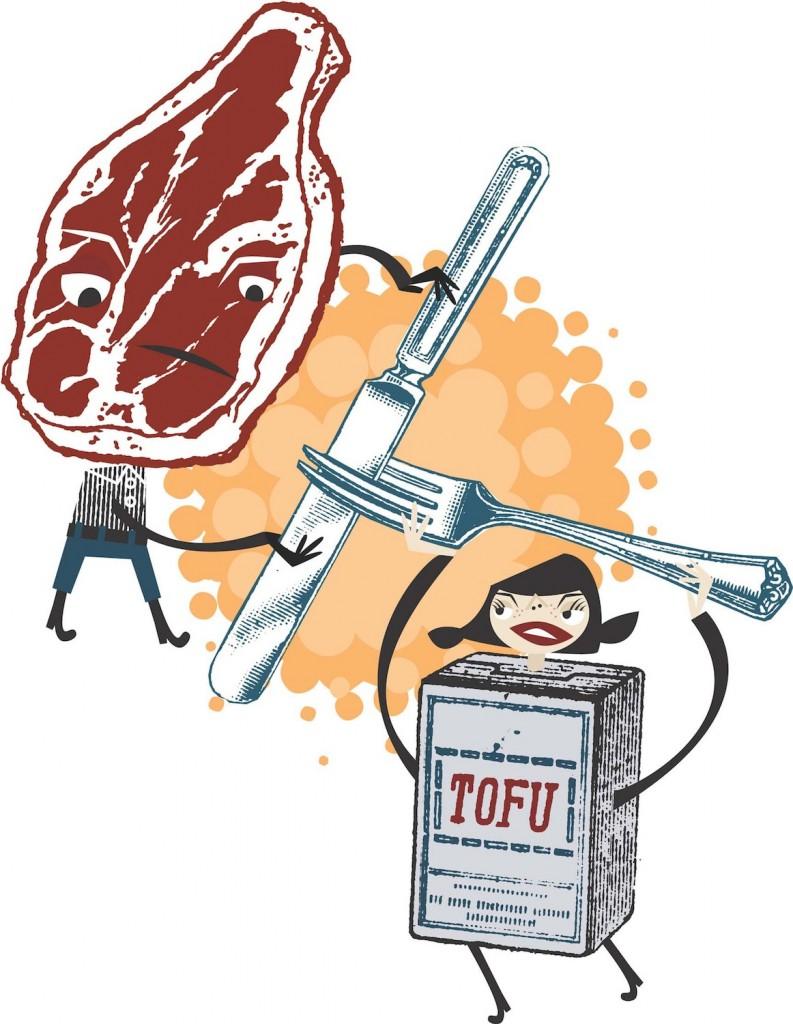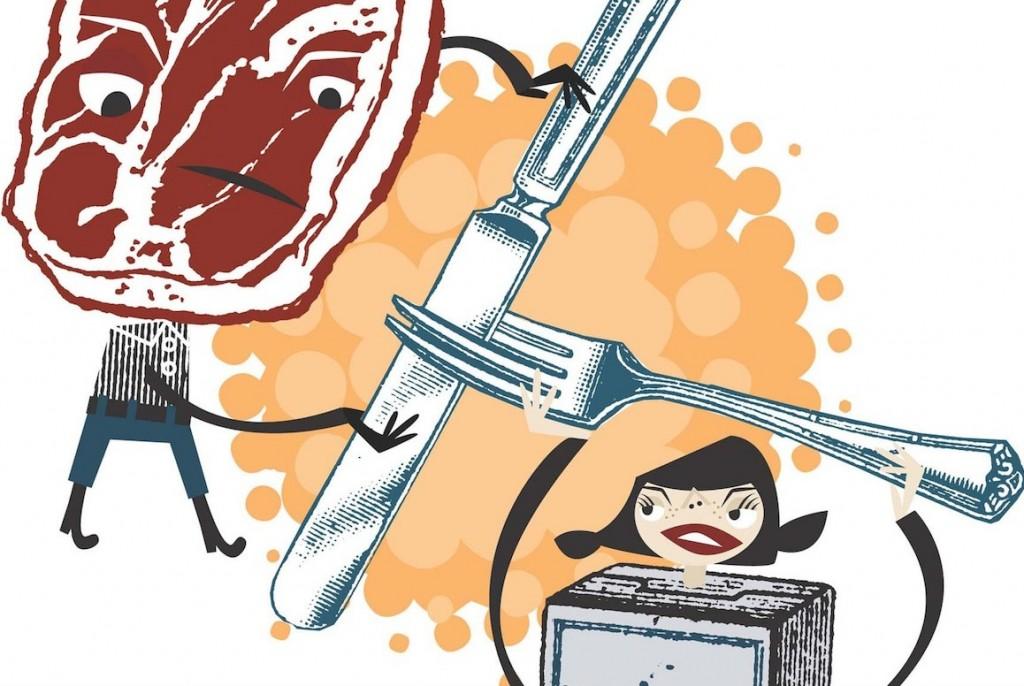No, Vegetarians Don’t Think They’re Better
A tacit, ongoing debate between meat eaters and vegetarians questions whether vegetarians are more morally upright for choosing not to eat meat. (Boo Davis/Seattle Times/MCT)
September 16, 2012
In a recent NPR article, Barbara J. King posits the question: do vegetarians and vegans think they’re better? Two high-profile vegans responded with the reasons they choose to live meatless lives, as well as a definitive “no” to feeling like ethically superior people.

Why is it, though, that so many meat eaters are turned off by vegetarians and vegans? As a vegetarian of over three years, I cannot count the number of times I have felt judged for my decision to avoid the blood and stick to the broccoli; yet I am rarely asked why I make the choice to do so.
The truth is that the motivations for a meatless diet are as diverse as the people who choose it. In King’s article, Colleen Patrick-Goudreau, author of a popular series of vegan cookbooks, advocates the “virtue argument,” explaining that avoiding harm to animals is her way of reflecting a value of nonviolence. This peaceful priority plays a part in religious motivations for avoiding meat, and it allows certain individuals to feel they are in harmony with all creatures.
For others, vegetarianism is less motivated by spirit, more by science. The environmental concerns of eating meat are many: the deforestation required for livestock contributes to 9 percent of carbon dioxide emissions, 37 percent of methane emissions, and 65 percent of nitrous oxide emissions—all of which are greenhouse gases affecting climate change. Manure and other substances from livestock operations may also contaminate water if not managed properly.
Some make the choice to avoid meat in order to advocate for their health. Animal proteins raise acidic levels in our bodies, increasing risk of cancer and diseases. As result, many people with unwanted diagnoses eliminate meat from their diets as a method of treatment. Others want to omit extra calories and fat from their food intake; still others feel vegetarianism aids in digestion.
Then we have our picky eaters: kids who always pushed the hamburgers and chicken fingers aside, waiting for the day their parents would stop trying to turn them into “good eaters.” This is the category I fell into and health consciousness drew me toward a vegetarian diet. My happiness with the decision is only escalated by the ethical and environmental benefits I have discovered along the way.
Even if a vegetarian’s or vegan’s motivations for a meatless diet are ethically based, as is the case with both of King’s interviewees, one ethical choice does not make a good person…and most vegetarians and vegans appreciate this. As Bruce Friedrich of Farm Sanctuary put it, “Everyone knows that there are saintly meat eaters and cruel vegetarians.” The idea is that in striving for awareness of the way our actions affect our fellow creatures, our environment and our bodies, we learn how to live lives that contribute to the overall goodness of the world. But this is not to say that meat eaters do not focus on other ethical issues or have other methods of increasing their awareness of the world. And it is definitely not to say that vegetarians have a monopoly on selfless behavior, because some of the most magnanimous people I have encountered are meat eaters.
If what is being criticized is the potentially pretentious attitude of vegetarians and vegans, the critic needs to take a look at himself or herself and ask what gave him or her that impression. Is it his own superiority complex that keeps him or her from accepting a litany of valid reasons for vegetarianism, instead chalking it up to a case of self-righteousness? Or is it that he or she has encountered vegetarians who have lost sight of their worldly motivations and instead become selfishly absorbed in attention-seeking?
Whether we have an obstinate meat eater on our hands or a bombastic vegan, the issue is close-mindedness. This kind of stubborn refusal to learn from another lifestyle leads to fruitless fighting for positions of superiority. It reduces our identity to a single issue and limits our ability to strive for awareness and appreciation for each other.
The question we should all ask ourselves before judging is: Do you think you’re better?













